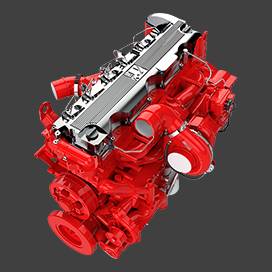Aug . 06, 2024 14:21 Back to list
Vibrantly Colored Brake Drums for Enhanced Vehicle Aesthetics and Performance Benefits
The Art of Painted Brake Drums A Unique Blend of Function and Aesthetics
In the world of automotive customization, enthusiasts often seek unique ways to enhance their vehicles’ appearance and performance. One intriguing trend that has emerged is the painting of brake drums. While brake drums are primarily functional components of a vehicle’s braking system, transforming them into a canvas for artistic expression adds a new dimension to automotive aesthetics. This article explores the significance, process, and benefits of painted brake drums.
The Importance of Brake Drums
Brake drums play a pivotal role in every vehicle's braking system, especially in older models and certain types of vehicles like trucks. They provide a surface against which brake shoes are pressed to slow down or stop the vehicle. Given their critical function, brake drums are often overlooked in terms of appearance. However, for automotive enthusiasts, functionality should not come at the expense of style. Painted brake drums serve as a visual surprise, showcasing the owner's creativity while maintaining the vital role these components play.
Expressing Individuality Through Art
Painted brake drums allow vehicle owners to express their individuality and creativity. This minor modification can transform a mundane vehicle into a personalized masterpiece. For many enthusiasts, customizing their vehicle is an extension of their personality, celebrating their passion for automotive design. A vibrant and colorful brake drum can catch the eye and provoke conversation, making a statement about the owner's interests and artistic flair.
The Painting Process
painted brake drums

Painting brake drums is not merely a cosmetic upgrade; it requires careful preparation and execution to ensure both aesthetics and functionality. The process typically begins with the removal of the drum from the vehicle. Once removed, the surface of the brake drum must be thoroughly cleaned to remove grime, rust, and old paint. After cleaning, sanding the surface is crucial to create an ideal base for the new paint to adhere effectively.
Once prepped, a high-temperature, durable paint designed to withstand the extreme conditions of brake components is applied. These paints are specifically formulated to resist chipping, fading, and damage from brake dust and heat emanating from braking actions. The most common colors range from vibrant reds and blues to more understated blacks and grays, allowing for a spectrum of personalization. After painting, a clear coat can be applied for additional protection and shine.
Benefits Beyond Aesthetics
Apart from visual appeal, painted brake drums offer several practical benefits. First, quality high-temperature paint can help in preventing rust and corrosion, extending the life of the drum. Additionally, customizing the brake drums can enhance the overall look of the wheels and tires, creating a cohesive aesthetic throughout the vehicle. This added touch can elevate the vehicle's resale value, as potential buyers may appreciate the attention to detail and customization.
Moreover, taking the time to customize components like brake drums demonstrates a commitment to craftsmanship and vehicle maintenance. For many enthusiasts, these small modifications are a source of pride, reflecting their dedication to their automotive projects.
Conclusion
Painted brake drums are more than just an aesthetic upgrade; they represent a unique intersection of art and functionality. By allowing vehicle owners to personalize an often-overlooked component, this trend fosters creativity and individuality in automotive customization. With careful preparation and quality materials, painted brake drums can enhance not only a vehicle’s appearance but also its longevity, proving that even the most functional parts of a vehicle can be a canvas for artistic expression.
-
Scania Brake Drums: OEM Quality for Optimal Safety & Durability
NewsAug.16,2025
-
R.V.I: Advanced Remote Visual Inspection for Precision
NewsAug.15,2025
-
Discover HYUNDA: Innovative Vehicles, Equipment & Solutions
NewsAug.14,2025
-
R.V.I: Unlock Advanced Insights & Real-time Performance
NewsAug.13,2025
-
Kamaz Brake Drum: Durable & Reliable for Heavy Duty Trucks
NewsAug.12,2025
-
Heavy Duty Iveco Brake Drum - Premium Quality & Safety
NewsAug.11,2025
